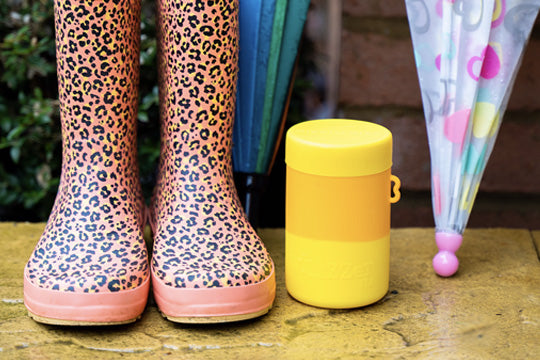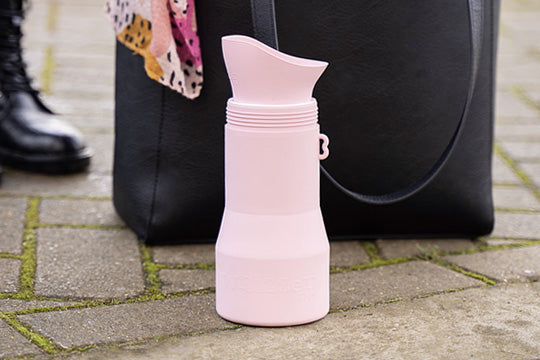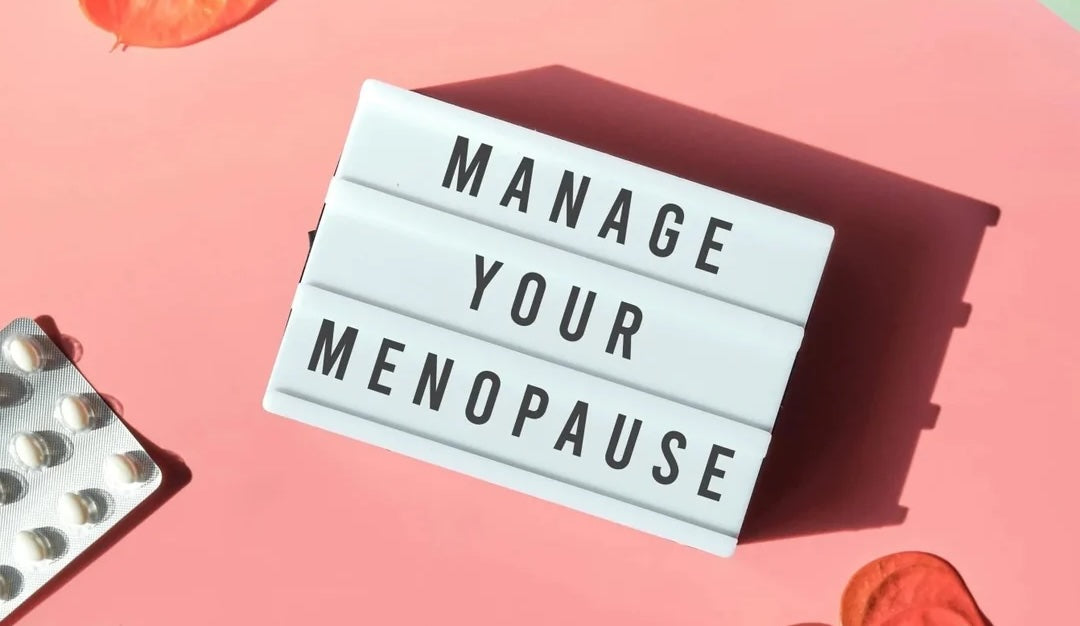Menopause can bring a host of changes, both physical and emotional.
One often overlooked yet significant change is bladder health. As hormone levels fluctuate, many women experience increased urinary frequency, urgency, and incontinence.
The increase in urgency and frequency to urinate, known as urinary incontinence (UI) or overactive bladder (OAB), can significantly impact a woman's quality of life during menopause. Here are several ways this condition affects women's lives:
-
Physical Discomfort:
- Disrupted Sleep: Nocturia, or frequent urination during the night, can disrupt sleep patterns, leading to fatigue and decreased overall well-being.
- Pain and Discomfort: Some women experience discomfort or pain associated with frequent urination or the sensation of urgency.
-
Psychological Impact:
- Stress and Anxiety: The constant worry about finding a bathroom and potential accidents can lead to heightened stress and anxiety.
- Embarrassment and Shame: Experiencing urinary incontinence can cause embarrassment, leading to a reluctance to participate in social activities.
-
Social and Lifestyle Changes:
- Reduced Social Interaction: Women may avoid social situations, travel, or activities they previously enjoyed to prevent potential embarrassment.
- Impact on Relationships: The condition can affect intimate relationships due to anxiety about accidents and decreased self-esteem.
-
Work and Daily Activities:
- Decreased Productivity: Frequent bathroom breaks can interfere with work tasks and productivity.
- Limitations on Daily Activities: The need to stay near a bathroom can limit physical activities and hobbies.
-
Emotional Well-being:
- Depression and Mood Swings: Chronic discomfort and the psychological toll of managing urinary symptoms can contribute to depression and mood swings.
- Reduced Quality of Life: Overall, the combination of physical discomfort, psychological stress, and social limitations can lead to a significant reduction in quality of life.
-
Health Concerns:
- Increased Risk of Infections: Withholding urination or frequent urination can lead to a higher risk of urinary tract infections (UTIs).
- Skin Irritation: Constant moisture from leakage can cause skin irritation and breakdown.
Urinary-related symptoms of menopause can begin during the perimenopausal period, typically starting in the mid-40s to early 50s. However, the exact age can vary widely among women with 30-40% of women 35-55yrs old who say they have experienced bladder weakness. This is a rapidly growing figure as the awareness and those seeking help increases too leading to more research being carried out.
These symptoms arise due to decreased estrogen levels, which can affect the urinary tract and pelvic muscles.
But don't worry, you're not alone, and the good news is there are steps you can take to manage these symptoms, regain control of your bladder and/or prevent/lesson symptoms by acting ahead of time.
Understanding the link between menopause and bladder health
As mentioned, Estrogen, a hormone that plays a crucial role in maintaining bladder health, declines during menopause. This hormonal shift can weaken the pelvic floor muscles, which support the bladder and urethra. As a result, you may experience:
- Increased urinary frequency: Needing to urinate more often.
- Urinary urgency: A sudden, strong urge to urinate.
- Urge incontinence: Leaking urine when you have a strong urge to go.
- Stress incontinence: Leaking urine when you cough, sneeze, or laugh.
Tips for Bladder Health Before and During Menopause
- Stay hydrated: While it may seem counterintuitive, drinking plenty of water can help regulate bladder function. Aim for at least eight glasses of water per day.
- Mind your intake: Limit caffeine and alcohol, as these can irritate the bladder and worsen symptoms.
- Pelvic floor exercises: Strengthen your pelvic floor muscles with regular Kegel exercises. These exercises can help improve bladder control and reduce leakage.
- Healthy diet: A balanced diet rich in fruits, vegetables, and whole grains can support overall health, including bladder function.
- Weight management: Maintaining a healthy weight can reduce pressure on the bladder and pelvic floor.
- Timely toileting: Don't ignore the urge to urinate. Delaying can lead to pressure on the bladder which will worsen overtime. By ensuring you have a Whizzer on you at all times, even if you can't bare to brave sitting on a public loo or need to go in the back of the car you can use the Whizzer in either case to ensure there's less mess and immediate relief.
- Consider bladder training: This technique involves gradually increasing the time between bathroom breaks to improve bladder control.
- Swap your underwear for WUKU - Our fellow Buy Women Built Business allies have launched an amazing new line of underwear and sleepwear specifically for combatting the symptoms of menopause. From hot flushes to incontinence they've not scrimped on style or comfort to ensure you feel protected. We'll be dedicating a new blog coming soon to give you the run down of their range.
- Have you heard of JUDE? - As a fellow Dragons' Den business who talks as much about wee as I do, it's great to know there is more attention on breaking toilet talk taboo. JUDE is a No. 1 Bladder Care supplement that is clinically proven to support healthy bladder function for females. As this is their specialist subject and sole focus they have a wealth of supportive information on the website for you to browse.
- Consult your doctor: If you're experiencing bothersome bladder symptoms, talk to your doctor. They can rule out any underlying medical conditions and recommend appropriate treatments.
By combining Whizzer, WUKU and Jude products you can elevate the stress felt by millions of women each day.
And with the Whizzer quickly growing to become part of every day conversations that normalise bladder difficulties in women, we hope the topic will no longer be discussed in gest- it's an issue that affects all women at some point in their life, so why are we made to feel worse about our bodies responding to natural changes?
Yes it's embarrassing, yes it's unpleasant but by suffering in silence our mental health suffers too. Women who would feel less alone to know others are struggling too are left feeling powerless, but this is definitely changing thanks to celebrities like Davina McCall, influencers and bloggers all speaking openly about their daily struggles.
So, if you're a women who experiences bladder leakage or urgency, the Whizzer offers a discreet and convenient solution allowing you to relieve yourself privately, anywhere, anytime.
You can confidently travel, attend events, and enjoy your life without worrying where the next bathroom is.
We also have women who ensure they have one for home use too. For some reason it's that 'key in the door' moment when you're so close to your loo yet for some reason your body refuses to take another step so keeping it by the door has saved many accidents! Moving it by the bed at night-times gives some comfort to know that if you're bolted out of a deep sleep you can reach for the Whizzer for immediate relief.
We will continue to fly the flag for female bladder health and keep adding more information and resources that could help.







